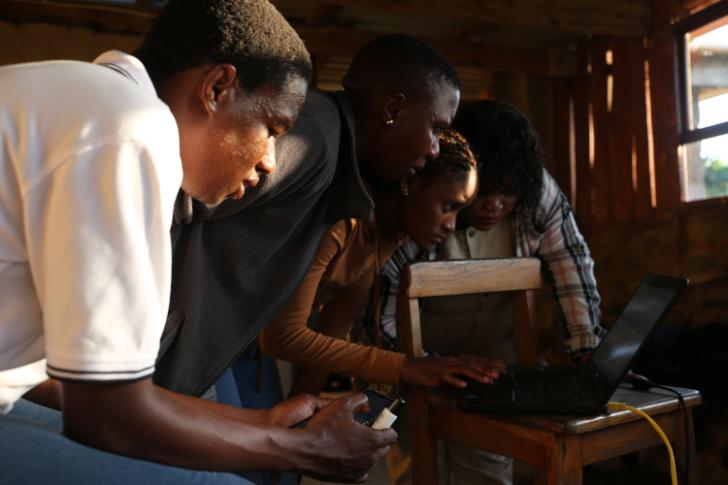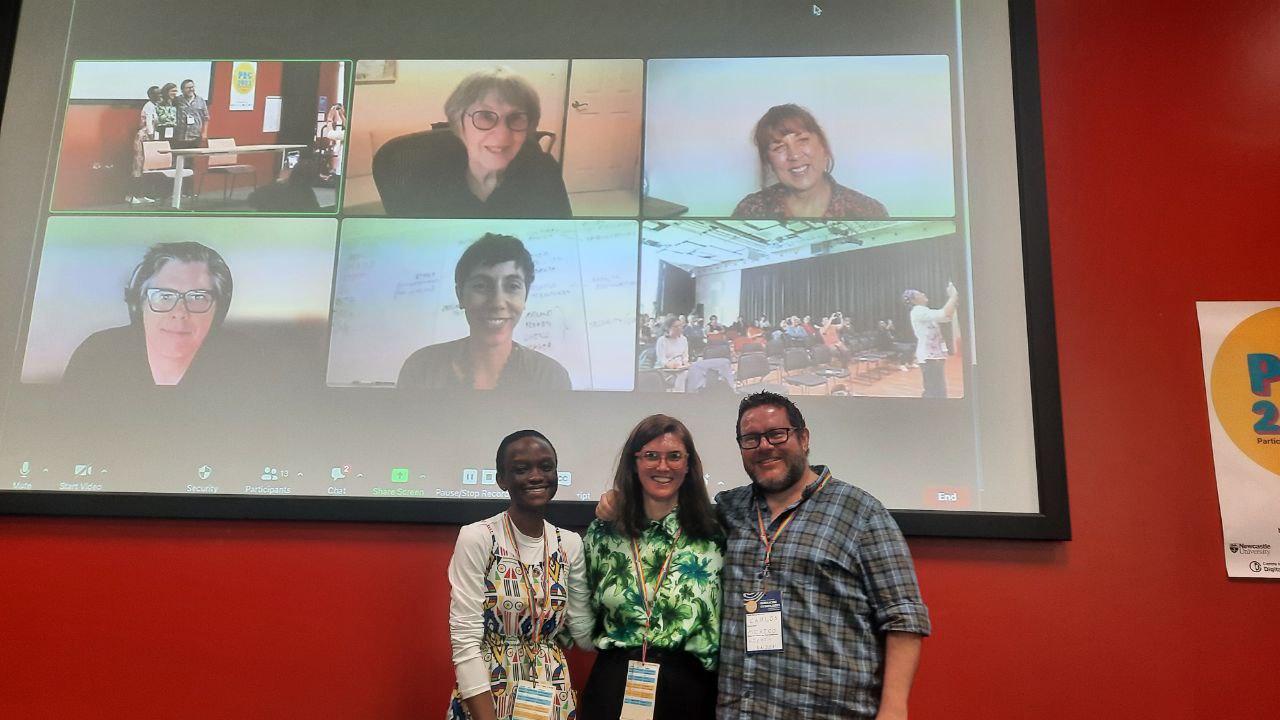
The national Community Networks Schools won this year’s Artful Integrators Award in a tie with the Mamaila Community Network from South Africa. The recognition was announced today (1 September) as part of the Participatory Design Conference (PDC) hosted by Newcastle University in Newcastle upon Tyne in the United Kingdom.
In its 10th edition, the award is intended to recognise outstanding achievement in the area of participatory design of information and communications technologies (ICTs). At the hyper-local scale the achievements of Mamalia Community Network were celebrated, while at the the multi-national scale recognised the national Community Networks Schools.
The tie between two community network initiatives happening in the global South shows the importance of the participatory, innovative and locally-led approaches this movement is bringing to communications and digital inclusion. Community networks* cultivate bottom-up, sustainable approaches to ICTs and meaningful connectivity that strengthen personal and collective autonomy and self-determination.

Representatives from the two iniatives during the Participatory Design Conference.
National schools empowering grassroots communities to bridge the digital divide
The national schools are a collective capacity-building and strengthening effort for the creation, development and consolidation of community networks. Around 35 communities are engaged in the national community networks schools, the first of their kind, taking place in five countries: Brazil, Indonesia, Kenya, Nigeria and South Africa. In addition to being a learning powerhouse, each school seeks to be a multiplier of community-led initiatives, bringing together people from different communities around the country and fostering collaboration with other organisations acting towards a locally-led approach to digital inclusion.
Between December 2021 and January 2023, each school is carrying its own timeline and programme, which were built in a participatory process and according to local needs. They can include mentoring as well as face-to-face and online activities on different topics related to community networks, such as services and infrastructure, sustainability, access policy and regulation, communication and self-determination, among others.
The collective design of training programmes for community networks adopted in the schools was inspired by the Participatory Action Research approach and an initiative developed over the course of several years in Mexico, the Techio Comunitario.
Mamaila Community Network creating opportunities in a rural area
The Mamaila Community Network aims to provide affordable internet access to community members in South Africa. Mamaila is a cluster of six villages in the Greater Letaba Municipality, made up of more than 20,000 people and where over 50% of the population are not economically active and only 22% percent are employed, according to the Internet Society.
The initiative started in 2019 as a pilot project to test the viability of establishing a community network using Wi-Fi technologies, founded by Kgopotso Magoro, a civil servant and PhD student. Like many from the area, she grew up in Mamaila but moved away to the cities seeking education and employment opportunities. For her ongoing PhD research, she decided to focus on solutions and began the long and collective journey that led to the Mamaila Community Network.
*The experiences and definitions of community networks can vary from place to place, since they are built and managed taking into consideration the needs and interests of local communities. These community-led initiatives have been growing around the world as a needed approach in the face of the persistence of the digital divide and its impact in exacerbating inequalities. To keep up to date on this topic, subscribe to the Community Networks and Local Access Monthly Newsletter.